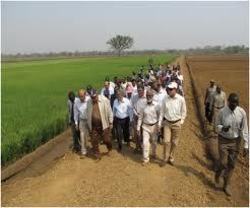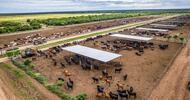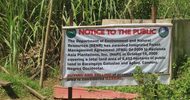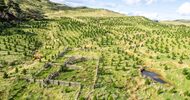Daily Nation | 13 June 2011

By CALESTOUS JUMA
The rising food prices are stimulating interest in investing in African agriculture.
But these investments have been criticised as a new form of colonialism at best and downright land-grabbing at worst.
A new report from the US-based Oakland Institute says that in 2009 alone, foreign investors leased or bought an area nearly the size of France (about 60 million hectares).
It is true that many of the land deals are not structured to benefit local communities. But it is wrong to claim that such investments will only help promote food exports at the expense of local needs.
Such claims ignore Africa’s determination to harness emerging technologies to promote agricultural development. The efforts are being promoted as part of larger strategies to stimulate economic transformation.
For example, in early 2011, the Saudi Star Agricultural Development, a food firm owned by billionaire Sheikh Mohammed al-Amoudi, announced plans to invest $2.5 billion in Ethiopia by 2020 to produce rice.
Ethiopia-based firms will lease idle arable land in the lowlands of the country. This is part of Ethiopia’s plan to lease three million hectares to private investors over the next four years.
Critics argue that Ethiopia should bank the land so that it can use it to feed itself in future.
Leasing now, they argue, amounts to allowing foreign investors to engage in land-grabbing that will disposes future generations of the ability to feed themselves.
But as I argue in my recent book, The New Harvest: Agricultural Innovation in Africa, the continent can feed itself in a generation.
Nearly 60 per cent of the world’s available arable land is in Africa.
What is needed is a vision among African leaders that would help the continent to contribute to global food needs while fostering local prosperity.
Efforts to achieve this have already been started through foreign investments in agriculture. Ethiopia has more than 74 million hectares of cultivable land.
So far, only 15 million is cultivated. Bringing three million hectares of land into cultivation in the coming four years is a modest step in the country’s effort to foster economic transformation and does not represent misguided land allocation.
Africa has three major opportunities: advances in science and technology; the creation of regional markets; and the emergence of a new crop of entrepreneurial leaders dedicated to the continent’s economic improvement.
To take advantage of the opportunities Africa needs to invest in rural infrastructure (energy, transportation, irrigation and telecommunications).
For example, only seven per cent of African agriculture is irrigated — 3.6 per cent in sub-Saharan Africa — compared to 47 per cent in south Asia.
Ethiopia aims to participate in international as well as regional markets. Its investment in hydropower, for example, will also serve Kenya.
In the past, each African country struggled to feed itself. Today, these countries will find it easier to expand agriculture through regional integration, trade and specialisation.
The country is learning from other African countries that have turned their agriculture around in very few years.












